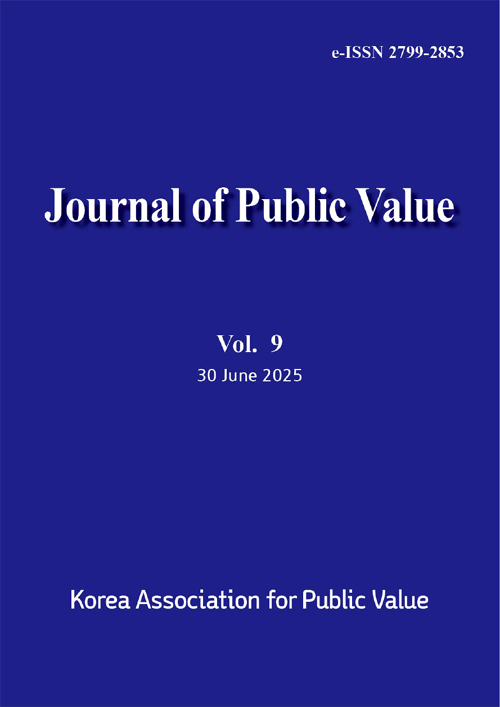학술논문
Artificial Intelligence (AI)-based Autonomous Weapons (AWs), its Ethical Task, and its implication to Moroccan Military Innovation
이용수 24
- 영문명
- 발행기관
- 한국공공가치학회
- 저자명
- Hyoungbin Park
- 간행물 정보
- 『Journal of Public Value』Vol. 9, 167~174쪽, 전체 8쪽
- 주제분류
- 사회과학 > 사회복지학
- 파일형태
- 발행일자
- 2025.06.30

국문 초록
Purpose: This article examines the ethical, legal, and strategic implications of deploying AI-based Autonomous Weapons Systems (AWS) in contemporary military operations, with particular attention to the Moroccan context. As major powers such as the United States, China, and Israel advance in AI militarization, emerging states like Morocco face both pressure and opportunity to modernize defense infrastructures. This study explores how Morocco might harness AI-based weapons responsibly, avoiding ethical pitfalls and legal vulnerabilities while aligning military innovation with humanitarian principles and Islamic ethical values.
Method: This study is based exclusively on a literature review and adopts a doctrinal research methodology. It analyzes academic publications and policy documents in the fields of international humanitarian law, military ethics, artificial intelligence, and Islamic jurisprudence. The research focuses on interpretative examination of key principles such as distinction, proportionality, precaution, and accountability under International Humanitarian Law (IHL), and engages critically with normative ethical frameworks including deontology, utilitarianism, and virtue ethics.
Results: The study finds that most AI-based weapons systems, as currently developed, remain legally ambiguous and ethically deficient in fulfilling IHL requirements due to their opaque decision-making (black box) and limited contextual awareness. The accountability gap in assigning responsibility for machine-led lethal actions raises serious legal and moral concerns. Moreover, a lack of binding international consensus on AWS regulation leaves emerging states vulnerable to strategic dependency and legal liability. For Morocco, this entails risks such as external technological reliance, software manipulation, and misaligned warfare protocols that may conflict with both international law and Islamic values emphasizing justice (ʿadl) and intent (niyyah).
Conclusion: To promote responsible military innovation, Morocco must institutionalize legal review mechanisms (e.g., Article 36 weapons reviews), establish a national ethics committee on AI defense technologies, and foster domestic AI R&D ecosystems. By embedding Islamic ethical principles within international legal norms, Morocco can model a culturally grounded, legally compliant path in the age of autonomous warfare. This article ultimately argues that the integration of AWS must be guided not only by strategic expediency but by a principled commitment to human dignity, legal accountability, and ethical restraint.
영문 초록
목차
1. Introduction
2. Current Global Landscape of AI-Based Autonomous Weapons
3. Legal and Ethical Frameworks Governing Autonomous Weapons
4. Implications for Moroccan Military Innovation
5. Conclusion and Recommendations
6. References
키워드
해당간행물 수록 논문
참고문헌
- Arms Control Today
- Mad Scientist Laboratory, U.S. Army TRADOC
- Am. U. Int'l L. Rev.
- Harvard National Security Journal
- Journal of Applied Philosophy
최근 이용한 논문
교보eBook 첫 방문을 환영 합니다!

신규가입 혜택 지급이 완료 되었습니다.
바로 사용 가능한 교보e캐시 1,000원 (유효기간 7일)
지금 바로 교보eBook의 다양한 콘텐츠를 이용해 보세요!


